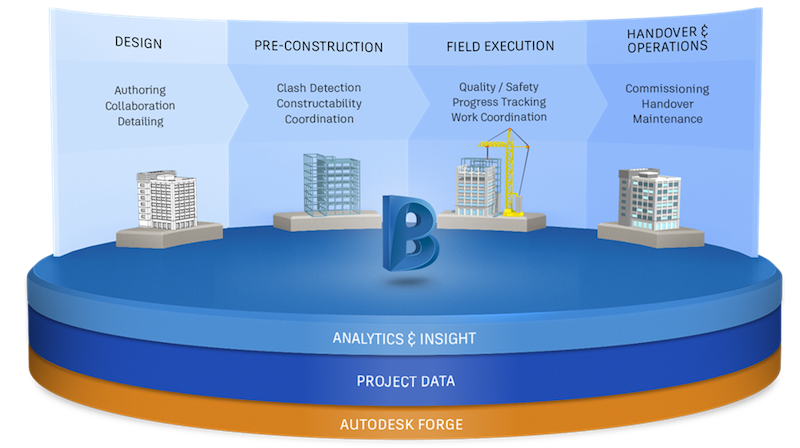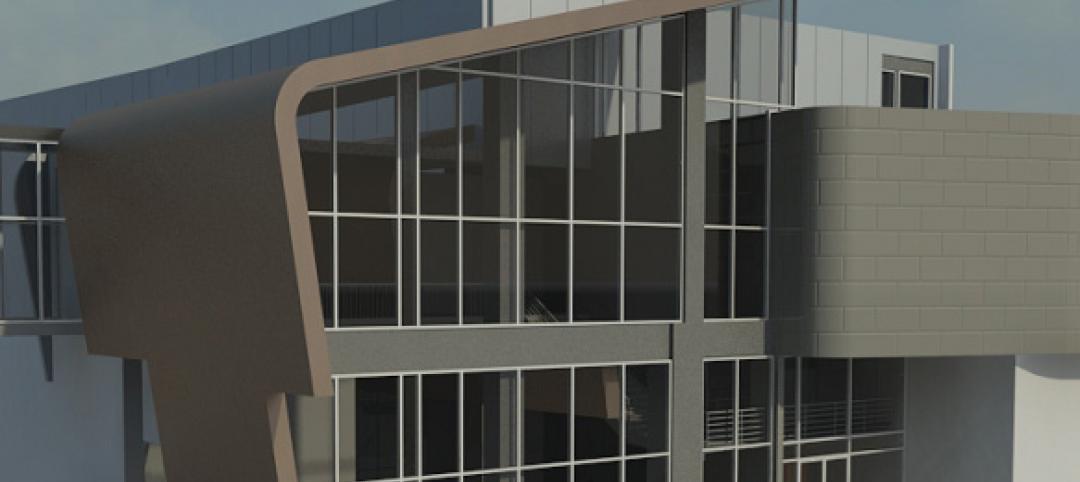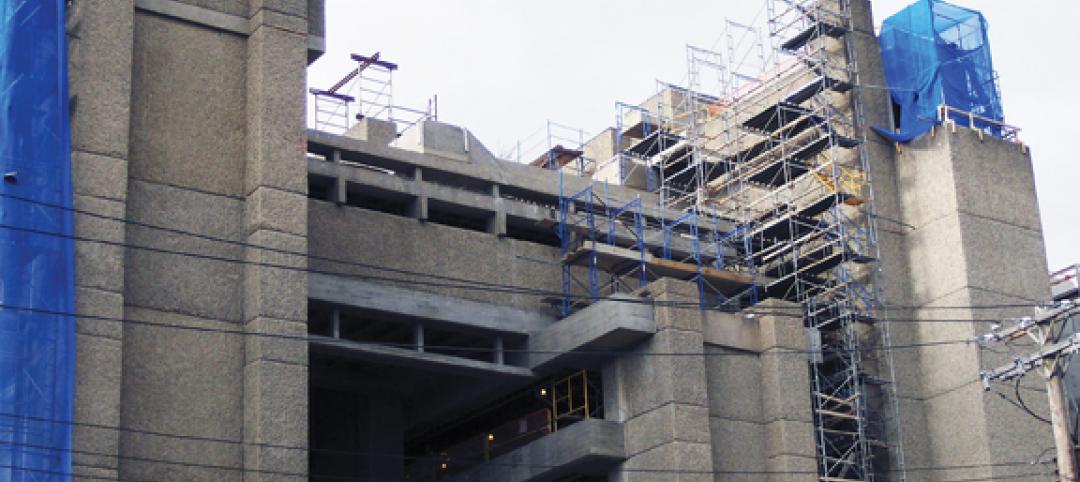This month, Autodesk will be rolling out its next generation of BIM 360 products that will include BIM 360 Design and BIM 360 Build modules (https://bim360.autodesk.com), making this suite the industry's first unified design-construction platform. BIM 360 is built on top of Forge, Autodesk’s cloud-based software platform, which the company launched in 2015.
In fact, all of Autodesk’s products are now built onto Forge, which makes it easier for the company to “expose the innards of technology” through a variety of application program interfaces, says Jim Lynch, Vice President of Autodesk’s BIM 360 Construction Line Group.
By opening Forge to the industry’s eco system, more of Autodesk’s customers have been building products that integrate seamlessly with that platform. One such example is Assemble Systems, a preconstruction planning tool. Indeed, since introducing this partnership program last November at its Autodesk University event, there have been 46 completed integrations on the exchange (https://integrations.bim360.autodesk.com), and another 90 in the works.
Expanding this eco system is important, explains Lynch, because it would be nearly impossible for Autodesk alone to meet all of the AEC industry’s different needs and requirements.
The goal, says Lynch, is the make the construction process easier, from design to commissioning, “so that there’s more end-to-end transparency.”
Third-party suppliers that want to become part of this network need to apply, although Lynch says that the entry bar is “pretty low.” In fact, competing companies that offer software that does pretty much the same thing as others on the exchange are welcome onto the Forge platform. (Lynch says that Autodesk might even invest in the ones it prefers.)
However, in building this app exchange, Lynch says Autodesk more interested in cultivating quality than quantity to help users connect and store their data. “What we’re trying to say is, if you work with Autodesk, you have the opportunity to put all of your information into one place. We’re putting everything on the cloud and offering customizable solutions.”
Related Stories
| Jun 3, 2011
BIM software helps Michigan college students improve building performance
With Autodesk Revit Architecture, Western Michigan University students model campus buildings for energy analysis, renovations and retrofits
| May 10, 2011
Solar installations on multifamily rooftops aid social change
The Los Angeles Business Council's study on the feasibility of installing solar panels on the city’s multifamily buildings shows there's tremendous rooftop capacity, and that a significant portion of that rooftop capacity comes from buildings in economically depressed neighborhoods. Solar installations could therefore be used to create jobs, lower utility costs, and improve conditions for residents in these neighborhood.
| Mar 10, 2011
Taking ‘PIM’ Beyond E-mail
Newforma enhances its Project Center information management platform with a Revit add-in’ and mobile capability.
| Feb 10, 2011
Medical Data Center Sets High Bar for BIM Design Team
The construction of a new data center becomes a test case for BIM’s ability to enhance project delivery across an entire medical campus.
| Feb 10, 2011
Zero Energy Buildings: When Do They Pay Off in a Hot and Humid Climate?
There’s lots of talk about zero energy as the next big milestone in green building. Realistically, how close are we to this ambitious goal? At this point, the strategies required to get to zero energy are relatively expensive. Only a few buildings, most of them 6,000 sf or less, mostly located in California and similar moderate climates, have hit the mark. What about larger buildings, commercial buildings, more problematic climates? Given the constraints of current technology and the comfort demands of building users, is zero energy a worthwhile investment for buildings in, for example, a warm, humid climate?
| Jan 28, 2011
Firestone Building Products Unveils FirestoneRoof Mobile Web App
Firestone Building Products Company unveiled FirestoneRoof, a first-of-its-kind free mobile web app. The FirestoneRoof mobile web app enables customers to instantly connect with Firestone commercial roofing experts and is designed to make it easier for building owners, facility managers, roofing consultants and others charged with maintaining commercial roofing systems to get the support they need, when they need it.
| Jan 25, 2011
Bloomberg launches NYC Urban Tech Innovation Center
To promote the development and commercialization of green building technologies in New York City, Mayor Michael R. Bloomberg has launched the NYC Urban Technology Innovation Center. This initiative will connect academic institutions conducting underlying research, companies creating the associated products, and building owners who will use those technologies.
| Jan 19, 2011
Large-Scale Concrete Reconstruction Solid Thinking
Driven by both current economic conditions and sustainable building trends, Building Teams are looking more and more to retrofits and reconstruction as the most viable alternative to new construction. In that context, large-scale concrete restoration projects are playing an important role within this growing specialty.














